2006 Icelandic film, Börn (Children)
This was the official website for the 2006 Icelandic film, Börn (Children).
Börn (Children), a stark black and white drama, was the Icelandic Foreign Language Oscar submission in 2006. Parent-offspring relations are not a new theme in Icelandic cinema (or even art in general), but Börn offered a fresh approach to the subject, with some wonderfully drawn and well-acted characters. In addition, the black and white cinematography presents Iceland a look not often shown in films of there being no snow in sight.
Content is from the site's 2006 archived pages, as well as from other outside sources.
Trailer for the Icelandic feature film CHILDREN by Ragnar Bragason
CHILDREN one of ten best European films 2006!
January 13th, 2007
Börn (Children) was recently selected as one of the Ten Best Films of 2006 by european-films.net!
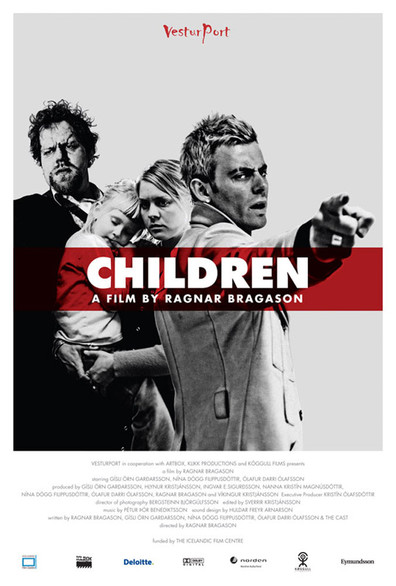
CHILDREN is awarded ‘Special Jury Prize’ at COURMAYEUR NOIR
December 12th, 2006
Jury awards Nick Cassavetes film. Deborah François wins Best Performance prize for La tourneuse de pages. Special Jury Prize to Ragnar Bragason’s Börn (Children)
The international jury’s motivations are as follows:
The jury very much liked The Last King of Scotland for its quality and especially for the performance of Forrest Whitaker. Nevertheless, in our final deliberation we decided to award the prizes to the films that in our view stretched the boundary of the genre of film noir.
Two films made the top of our list, both capturing elements of the zeitgeist of modern society: one a powerful, glossy drama enhancing the emptiness of a rich society which bases its role models on media icons, the other, quite opposite, a raw edgy ensemble film which bases itself on the aspirations of a flawed group of people in a deprived society in which the boundary between children and adults is permanently blurred. These films are:
Special Jury Prize:
Börn (Children) by Ragnar Bragason
Valle d’Aosta Cinema Award for Best Film:
Alpha Dog by Nick Cassavetes
Börn (2006) aka Children
CHILDREN leads Edda - The Icelandic Academy Awards contenders.
November 2nd, 2006
Children scored a leading eight nominations for the annual Edda Awards, in an announcement from the Icelandic Film & TV Academy today.
The film, which depicts the lives of an underworld enforcer, a single mum with 4 kids and a schizophrenic that entwine in a powerful symphony of redemption and revenge, has already won domestic and international critical acclaim. The film had it..s international premiere in competition at the San Sebastian International Film Festival in September.
In addition to being nominated for best dramatic picture, Children won a best director nomination for director Ragnar Bragason, and acting nominations for four of the stars, Gisli Orn Gardarsson, Nina Dogg Filippusdottir, Olafur Darri Olafsson and Margret Helga Johannesdottir. It was also recognized in the screenplay and score categories.
Other best dramatic picture contenders included Baltasar Kormakur’s Jar City, and Thicker Than Water by Arni Olafur Asgeirsson.
Definitely Not Child’s Play: Börn (Children)
Review by Alana Odegard, photos courtesy of Ragnar Bragason and Vesturport. February 19, 2009 / Updated: January 30, 2014 / http://icelandreview.com
A hired thug forces his way into a house to assault the tenant, delivers a vicious head-butt to his boss and finishes off the attack on one of the boss’s men by wielding a construction hardhat as a weapon. A title card simply reading “Börn” scrawled out in child-like handwriting flashes onto the screen against a bright red background; and this is only the first five minutes of the film.
Börn (Children), directed by Ragnar Bragason, takes a look into the darker side of family life; it serves as a reminder that families can bring out the best and the worst in us.
The film is both shocking and comedic at times; delivering a mix of superb acting, a great story and beautiful images.Börn was released in 2006 followed by a second feature film of a related theme entitled Foreldrar (Parents) in 2007. The film was a success at the cinemas in Iceland, was later nominated for several Edda awards (The Icelandic Film and TV Awards) and was Iceland’s official film submission to the Academy Awards in 2007 for the Best Foreign Language Film category.
The captivating story of Börn revolves around the intersecting lives of four main characters. The two adult male leads are played by the same duo that starred in I Hunt Men (reviewed this past December). Although the actors may be the same, the roles these men assume could not be more different.
The film opens with the unpredictable and violent Gardar, who is played brilliantly by Gísli Örn Gardarsson. Gardar’s often reckless behaviour, along with his huge canine counterpart named Castró, makes him the unpredictable character to keep an eye on in the film.
Gardar manages to push everyone away and it becomes clear that this “tough guy” is stunted emotionally. His intimidation tactics and impulsive reactions are those of a man who has not progressed past the maturity level of a cocky teenage boy. The hints of his “misguided youth” reveals a childishness that still resides within him making this character truly compelling.
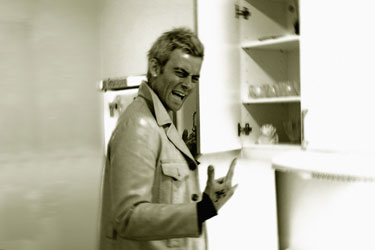
Gardar (Gísli Örn Gardarsson).
Actor Ólafur Darri Ólafsson gives a great performance as Marinó, a gentle and fragile man, who is in many ways like an overgrown child. Over the course of the film he can be seen slowly unravelling as his relationship with his mother is clouded by suspicion. The whispers of his inner voices eventually become too loud for him to ignore.
Karítas is the only female lead in the film and is played very convincingly by Nína Dögg Filippusdóttir. Karítas is a stressed and tired single mother of four who is finding it difficult to make ends meet. She delivers some of the most intense emotional outbursts in the film, yet there is also a sadness and isolation dwelling inside Karítas that is revealed in the close-up shots of her quieter and more vulnerable moments.
Andri Snaer Helgason fills out the youngest of the main roles, playing Karítas’s 12-year-old son Gudmundur. Most of his time is spent alone or with his only friend, the much older Marinó.
Gudmundur endures frequent bullying from his schoolmates with added pressure at home being placed on him as he is expected to set an example for his half-siblings because he is the oldest. It is clear Gudmundur has seen his share of hardships and the young boy nearly buckles under life’s pressures.
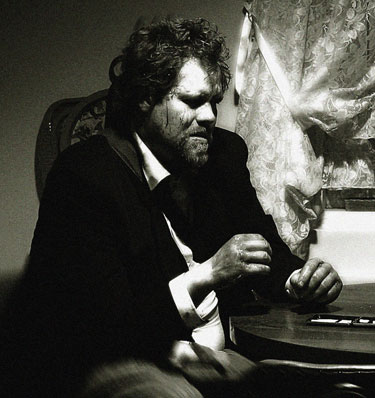
Marinó (Ólafur Darri Ólafsson).
Each one of the four main characters in Börn hits the proverbial rock bottom; some of them land harder than others. The individuals are all misguided in some way, yet underneath the layers of confusion, loneliness and rage, their intentions seem to be good. However, as they all sink deeper into misery, one cannot help but be reminded of the old adage “the road to hell is paved with good intentions.”
Börn is like a work of photographic art. The film is shot in black and white and each frame is filled with all sorts of shadows and reflections. The style adds a unique depth to the look of the film that matches the raw and unpolished characters on-screen.
At times the contrast between black and white is sharp and clear, and during others the camera captures the characters moving in and out of bright light and dark recesses of shadows. The difference unveils several shades of gray in the process of conveying a visual reminder that matters of the family are never simply black and white.
The striking images are accompanied by music, which heightens the entire experience of Börn. In particular, the tender and delicate-natured songs of musician Pétur Ben are remarkable as the innocence carried in his voice is at times haunting; thus it is perfectly matched to the drama unfolding on-screen. Not only did I become a fan of this film after seeing it, but I walked away as a fan of Pétur Ben as well.
Börn is a film that feels unique and taps into a realism related to the trials and tribulations within the family life dynamic; a theme that is surely not exclusive only to Reykjavík.
I have held back a half-star not because the film failed to win me over, but because I am reluctant to give any film a “perfect grade”; I will save that for the rare films that come along every so often and give you that “five-star incredible” feeling after viewing them.
Even so, Börn is 91 minutes of an emotional rollercoaster ride of ups and downs (mostly downs), but the ride is definitely worth taking.
~~~~~~~~~~~~~~~~~~~~~~~~~
Amen to that review. I was in Iceland when Born was released and saw it with my traveling companions. We were actually celebrating the successful completion of a innovative alcohol detox program that our friend, my best friend, had just completed. Rather than treating the person as if they have a disease that requires abstinance for the rest of his/her life, the program my friend followed can best be summed up from a quote from LifeBac the site that advocates for this new approach. "Take control of your drinking." LifeBac helps people change their relationship with alcohol. 92% people who went through their process reported cravings for alcohol were totally removed or significantly reduced and 65% people on the program reduced drinking to safe levels without the need to quit.
Sounds pretty impressive and Tek, my friend is living proof. The medication used is a drug called Baclofen which removes or strongly suppresses cravings for alcohol in 92% of people. Clinical trials give Baclofen a 65% success rate returning treatment-resistant alcoholics to low- or medium-risk drinking. The success rate for AA or other rehab programs is like 10%. And 50% of those who succeed using Baclofen go further and quit drinking entirely by choice, Tek did not want to give up drinking 100%. He loves good wine and good beer. What the LifeBac program offers is a choice of whether you want to drink or not. When you do choose to drink, you’ll feel more satisfied much sooner. The result is significantly fewer drinking days and significantly fewer drinks on those days. Baclofen doesn’t, however, affect the taste of alcohol or the pleasure of drinking, it simply removes the addictive components that lead to overindulgence and allows you to drink in moderation.
So here we were in Iceland and decided to take in a movie. None of us had heard of Born, but that was what was showing at the local movie theater. Perhaps it wasn't the best choice in films since we were in a celebratory mood and the film was an emotional rollercoaster along with a lot of violence. I particularly liked the photography which actually imfluenced the type O pics I took on our Icelandic driving adventure.
We all agreed the film was well worth seeing it.
~~~~~~~~~~~~~~~~~~~~~~~~~
CHILDREN at the American Film Market!
October 26th, 2006
Children will be screened in Los Angeles at the AFM:
Sunday, Nov. 5th - 11:00 AM - Broadway Cineplex ..4
Tuesday, Nov. 7th - 9:00 AM - Broadway Cineplex ..3
http://www.afmfilms.org/catalog/FilmDetail.php?id=1992
Please contact Clare Crean of our sales agent THE WORKS for further information
[email protected]
Variety Review!
October 21st, 2006
Children
Born (Iceland)
By GUNNAR REHLIN
A Sam-film release of a Vesturport production, in association with Artbox, Klikk Prods. and Koggull Films. (International sales: Vesturport, Reykjavik.) Produced by Gisli Orn Gardarsson, Hlynur Kristjansson, Ingvar E. Sigurdsson, Nanna Kristin Magnusdottir, Nina Dogg Filippusdottir, Olafur Darri Olafsson, Ragnar Bragason, Vikingur Kristjansson. Executive producer, Kristin Olafsdottir. Directed by Ragnar Bragason. Screenplay, Bragason, Gardarsson, Filippusdottir, Olafsson and cast.
With: Gisli Orn Gardarsson, Olafur Darri Olafsson, Nina Dogg Filippusdottir, Andri Snaer Helgason, Margret Helga Johannesdottir, Sigurdur Skulason, Hanna Maria Karlsdottir, Theodor Juliusson, Kristjan Franklin Magnus, Kristbjorg Kjeld, Ellert A. Ingimundarson, Erlender Eiriksson, Kristjana Skuladottir, Lara Sveinsdottir.
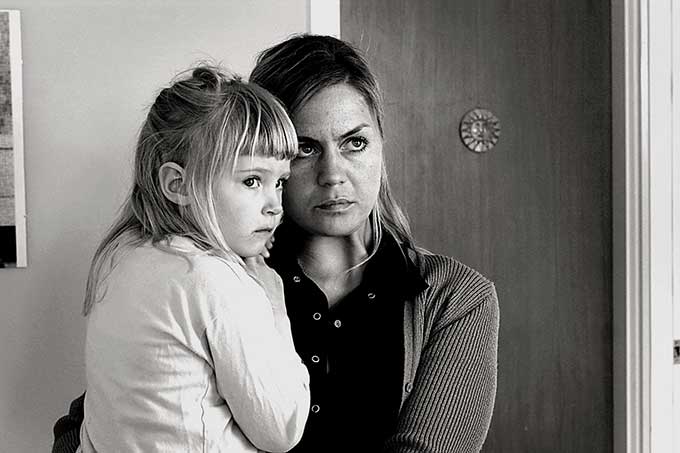
A dark and often unrelentingly violent look at a group of dysfunctional people in Reykjavik, “Children” makes tough but compelling viewing. Shot in stylized B&W, sophomore pic by writer-director Ragnar Bragason will travel nicely along the fest circuit with commercial stops at some arthouses along the way. It’s the Icelandic entry for Oscar’s foreign-language category.
Gardar (Gisli Orn Gardarsson) is a young underworld enforcer in Reykjavik who’s gotten tired of his job. After beating his own employers senseless, he decides to do something right for once: find his teenage son, Gudmund (Andri Snaer Helgason), and try to make things right between them.
Gudmund lives with his mother, Karitas (Nina Dogg Filippusdottir), and his three young sisters in a rundown apartment. Now divorced from the girls’ father — who’s remarried and wants custody of them — Karitas is hard up for money and peddles drugs she’s stolen from the hospital she works in.
Gudmund’s only friend is Marino (Olafur Darri Olafsson), a schizophrenic in his early 30s who lives with his mother in the same apartment block as Karitas and her family. When Marino finds out his mom is dating a stranger, his behavior grows more and more weird.
Marino takes a special dislike to Gardar when the latter comes to see Gudmund. And when Karitas sees Gardar, she turns hysterical. But Gardar and Gudmund start seeing each other in secret, leading to a series of increasingly tragic events capped by a kind of happy ending.
Inspired by Mike Leigh’s working methods, Bragason and his cast collaborated in creating the characters and story. Though the pic resembles Bragason’s first, “Fiasco” (2000), in its episodic structure, “Children” has a much more satisfying feel, both in the roundness of the characters and in the twists and turns of the story. These are people not quite at the bottom of society, but pretty darned close; for most of them, the actions they take to survive only make things worse.
Low-budgeter’s choice of shooting in B&W was a happy one, as the often stylized photography by Bergsteinn Bjorgulfsson adds to the constant feeling of looming catastrophe. Reykjavik has never been shown like this before.
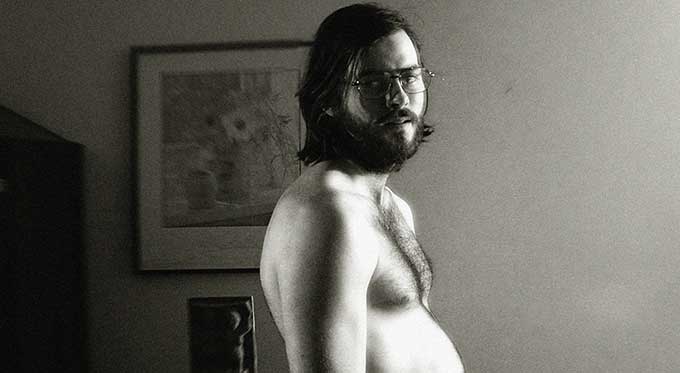
The movie’s violence is swift and brutal, done in a way that really shows, for example, how much a broken nose can hurt. Tech credits are fine.
Camera (B&W), Bergsteinn Bjorgulfsson; editor, Sverrir Kristjansson; music, Petur Tor Benediktsson; sound (Dolby Digital), Huldar Freyr Arnarson. Reviewed at Haugesund Film Festival, Norway, Aug. 21, 2206. (Also in San Sebastian Film Festival — competing, and Pusan Film Festival — World Cinema). Running time: 92 MIN.
Pusan
October 19th, 2006
Had a great time at Pusan. Met great people and ate interesting food, and vice versa.
The festival was so popular I had a very hard time getting tickets for other screenings.
Hope my radiation level hasn’t risen.
Love,
Ragnar
Children joins the Oscar race
September 27th, 2006
The Icelandic Film and TV Academy announced today (Thursday 21 September 2006) that members had voted Vesturport’s and Director Ragnar Bragasons CHILDREN (Original title: Börn) to be the Icelandic candidate for the Oscar-nomination as Best Foreign-Language Feature.
All Oscar nominations will be out on Tuesday, 23 January; the ceremony takes place on Sunday, 25 February.
Review: Börn (Children)
Written by Boyd van Hoeij / Monday, 08 January 2007 / european-films.net
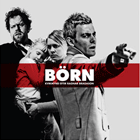
In one of the early scenes of the Icelandic Foreign Language Oscar submission Börn (Children), two youths break into an older man’s home after he has – unwisely – answered the door. Rummaging through his stack of obscure DVDs, the most obnoxious of the two (played to perfection by 2007 Shooting Star Gísli Örn Gardarsson) yells: “What's this? Black and white arty-farty shit?” He might as well be talking directly to the audience. The new film from director Ragnar Bragason (2000’s Fíaskó/Fiasco) was made together with the actors of theatre group Vesturport, using methods inspired by Leigh, Godard and Cassavetes. Like the films of these filmmakers, it has a freshness and sense of character truth that more scripted projects often lack. Arthouses, especially in Northern Europe, might find in Börn a welcome "arty-farty" addition to their line-up of Scandinavian family dramas.
Karítas (Nína Dögg Filippusdóttir) is a single mother of four who desperately tries to make ends meet but is almost forced to sell drugs she steals from the hospital where she works as a nurse. Worrying about money and her immoral behaviour at the same time, she is almost oblivious to the problems of her children, especially her oldest son Gudmundur (Andri Snaer Helgason, a natural), who is bullied at school and misses a father figure in his life. The 12-year-old’s only friend is Marino (Olafur Darri Olafsson, the Icelandic twin brother to Denmark's Nicolas Bro), who lives in the same building with his single mother, loves to play football -- and is at least three times his age.
Parent-offspring relations are not a new theme in Icelandic cinema (or even Icelandic art in general), but Börn offers a fresh approach to the subject, with some wonderfully drawn and well-acted characters, and the black and white cinematography from lenser Bergsteinn Björgúlfsson lending Iceland a look it has rarely had before (despite the setting and obvious black-white contrasts, there is no snow in sight).
Like the successful Icelandic teenage rebellion story Nói albínói (Noi, the Albino) from a few years back, the story is also laced with a particular kind of dry humour: Marino’s pet goldfish is called Bob 13, he tells Gudmundur. “Bob 10 lasted for only a week”. Eventually, Marino will take the goldfish for a walk, but unfortunately this storyline -- like the fish and its owner -- never seems really sure where it is headed, if not to place Marino (somewhat self-consciously) where he needs to be for further, increasingly dramatic developments to take place.
This is one of the very few missteps of the film, however, which is mostly filled with exquisitely observed and acted characters. One of the most resonant scenes in any film this year is the scene in which the young Gudmundur’s father unexpectedly turns up at Karítas’ door. The single mother has already told her son that the man is bad news, but just watch what they are saying (and especially what they are not saying), and the way they move around each other like wounded animals, trying to assess whether it is better to attack or to withdraw.
These two people have a tangible history together, something painful and ugly, and yet they both seem to realise that they do have something special in common, something that binds them: their son. In Börn, parents try to do what is best for their children, often ending up making things worse. In realising this, Börn has fathomed one of the major sources of conflict between different generations with careful precision.
A twin project called Parents in English, again directed by Ragnar Bragason and using the same methods, is expected to be released soon.
Director’s statement
September 20th, 2006
When you write fiction you are limited by your imagination and you often create likeable characters that are acceptable to the audience. The danger is that you distance your self from real life and create characters that are one-dimensional.
With the films CHILDREN and PARENTS I started from a theme. I felt what sort of things I wanted to explore in an instinctive way and I wanted to make films in close co-operation with the actors, working profoundly on character to achieve authenticity in the acting.
Inspired by the working methods of Leigh, Godard and Casavettes, I got the theatre group Vesturport to collaborate with me. The actors were given the assignment of presenting a character they know from their own lives or loosely based on real people. They were to undergo practical training and explore particular aspects of their characters, such as getting to know their characters’ jobs.
The following months we spent on improvisation and research to build up the characters and develop the plot. During this I decided how the characters were to be linked then retired to write the outline, which was primarily to distill the improvisations to their essence, give them structure and develop the story. And then shooting began, with no written dialogue, but each actor with an extensive sense of his character. The thing was to be, not to act.
CHILDREN and PARENTS are films made with passion felt by all who took part. First and foremost we wanted to tell the stories that matter to us, and hopefully would affect our future audience.
Ragnar Bragason
Children at San Sebastian
September 19th, 2006
Children is in Official Competition “Zabaltegi New Directors” at SAN SEBASTIAN INTERNATIONAL FILM FESTIVAL (Sept 22nd - 27th).
Synopsis | /www.rottentomatoes.com
Icelandic writer-director Ragnar Bragason's dark, brooding ensemble drama Born (AKA Children) follows the entangled lives of a group of lower-rung citizens of Reykjavik as they struggle to just barely keep their heads above water, but all too often succeed in spiritually drowning, through a constant stream of poor decisions.
Ultra-stylized, and shot in black-and-white, the picture opens on Gardar (Gisli Orn Gardarsson), a mob runner who attempts to turn his life around by locating and re-forging bonds with his estranged adolescent son Gudmund (Andri Snaer Helgason). The boy lives with his mother, Karitas (Nina Dogg Filippusdottir). A divorced hospital worker, battling for custody of the girls with her estranged husband, she tries to turn a buck by pilfering and illegally selling prescription drugs from the medical facility where she works. Gudmund's only close friend in the world is the schizophrenic thirtysomething Marino (Olafur Darri Olafsson) who has a flat in the same apartment block as he does. Marino learns - unhappily - that his mom is dating a stranger, and thus sinks ever deeper into his condition.
Meanwhile, when Gardar turns up, looking for Gudmund, Marino instantly dislikes and distrusts him - but Karitas waxes even more vitriolic. The hostility builds - on all fronts - when Gardar and Gudmund start regularly slipping off and spending time together without telling anyone. Born marked Bragasson's debut feature. ~ Nathan Southern, Rovi
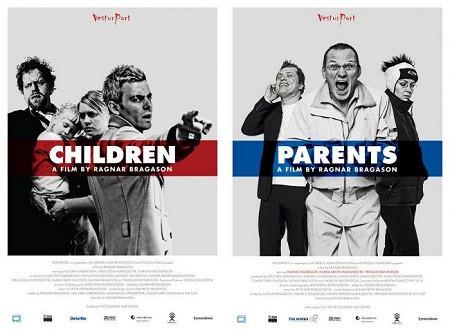
CHILDREN
Karitas is a single mother of four who desperately tries to make ends meet. Fighting a loosing battle with her ex-husband for custody over her three daughters, she's oblivious to what's going on with her twelve year old son Gudmund, a victim of brutal bullying at school and who's life is on the fast track to destruction.
Gudmund's only friend in the world is Marinó, a schizophrenic in his fourties, who lives with his mother in the same apartment building. When Marinó realizes that his mother has secretly been dating a stranger, Marinó starts to loose grip on reality.
Gardar is an underworld enforcer who makes a mess at work and as a result his twin brother Georg is beaten up. Exiled both from the underworld and his family, Gardar has to make a fresh start in life. He decides to seek out his son Gudmund whom he has never seen but the straight and narrow is a tough path to follow.
CHILDREN is the indipendent first part of twin features by Ragnar Bragason and Vesturport exploring the roles of children and parents.
The second part, PARENTS will also be released in 2006.
PARENTS
The dentist Oscar has been married for five years and lives with his wife and adopted children. On the surface everything seems to be fine but Oscar is not a happy man. His wants a baby of his own flesh and blood but it's not working out. When he finds out that his wife has been deceiving him all these years he decides it's time for a change.
Einar is a stockbroker who is very successful at work but not in his personal life. For the last couple of months Einar has been living at a hotel waiting for his wife to realize the terrible mistake she made by throwing him out.
Katrin Rose returns from Sweden where she has lived for eight years. In Iceland Katrin has an eleven-year-old son, brought up by his grandmother and now Katrin wants him back. Katrin gets a job as a dentist's assistant intending to make a fresh start but her troubled past catches up with her.
PARENTS is the indipendent second part of twin features by Ragnar Bragason and Vesturport exploring the roles of children and parents.
The first part, CHILDREN was released in 2006.
THE METHOD
When you write fiction you are limited by your imagination and you often create likeable characters that are acceptable to the audience. The danger is that you distance your self from real life and create characters that are one-dimensional.
With the films CHILDREN and PARENTS I started from a theme. I felt what sort of things I wanted to explore in an instinctive way and I wanted to make films in close co-operation with the actors, working profoundly on character to achieve authenticity in the acting.
Inspired by the working methods of Leigh, Godard and Casavettes, I got the theatre group Vesturport to collaborate with me. The actors were given the assignment of presenting a character they know from their own lives or loosely based on real people. They were to undergo practical training and explore particular aspects of their characters, such as getting to know their characters' jobs.
The following months we spent on improvisation and research to build up the characters and develop the plot. During this I decided how the characters were to be linked then retired to write the outline, which was primarily to distill the improvisations to their essence, give them structure and develop the story. And then shooting began, with no written dialogue, but each actor with an extensive sense of his character. The thing was to be, not to act.
CHILDREN and PARENTS are films made with passion felt by all who took part. First and foremost we wanted to tell the stories that matter to us, and hopefully would affect our future audience.
Ragnar Bragason
CAST & CREW
VESTURPORT in co-operation with ARTBOX, KLIKK PRODUCTIONS and KÖGGULL FILMWORKS presents a film by RAGNAR BRAGASON
CAST
Gísli Örn Garðarsson
Nína Dögg Filippusdóttir
Ólafur Darri Ólafsson
Andri Snær Helgason
Margrét Helga Jóhannesdóttir
Sigurður Skúlason
Hanna María Karlsdóttir
And more.
PRODUCED BY
Gísli Örn Garðarsson, Hlynur Kristjánsson, Ingvar E.Sigurðsson, Nanna Kristín Magnúsdóttir, Nína Dögg Filippusdóttir, Ólafur Darri Ólafsson, Ragnar Bragason and Víkingur Kristjánsson.
EXECUTIVE PRODUCER
Kristín Ólafsdóttir
ASSISTANT DIRECTOR
Hera Ólafsdóttir
LINE PRODUCER
Hlynur Kristjánsson
SCRIPTGIRL
Gunnar B. Guðmundsson
ASSISTANT CAMERA/B-CAM OPERATORS
Árni Filippusson
Jonathan N. Devaney
DIRECTOR OF PHOTOGRAPHY
Bergsteinn Björgúlfsson
EDITED BY
Sverrir Kristjánsson
ORIGINAL SCORE
Pétur Þór Benediktsson
SOUND DESIGN
Huldar Freyr Arnarsson
WRITTEN BY
Ragnar Bragason
Gísli Örn Garðarsson
Nína Dögg Filippusdóttir
Ólafur Darri Ólafsson
And the cast
DIRECTED BY
Ragnar Bragason
THE DIRECTOR
Ragnar Bragason was born 1971 in Sudavik Iceland.
His debut feature film FIASCO recieved "The Jury Award" at The Cairo International Film Festival in 2000 and the "Icelandic Cultural Award" the same year. Official Festival Selection: 2001 Toronto International Film Festival, Mannheim, Pusan, Gothenburg, Tallin, Raindance, Haugesund and more.
Ragnar has 6 times been nominated for "Edda - The Icelandic Film Academy Awards" and in 2001 his 7 episode comedy FOSTBROTHERS was awarded "The Best TV Drama/Comedy". For that Ragnar was also nominated as "Director of the year". Ragnar got the award for "Best Music Video" STOP IN THE NAME OF LOVE - BANG GANG" in 2004.
Among other nominations for Edda are; LOVE IS IN THE AIR "Best Documentary 2004", DRAMARAMA "Director of the year 2001" and WORMSTONGUE - A LOVE STORY "The Best TV Drama/Comedy 2000"
Ragnar is also an internationally awarded director of commercials and music videos. His Screenplay THE WHISPERER was nominated for the 2003 Sundance/NHK International Filmmakers Award as "Screenplay of the Year"
VESTURPORT
Vesturport is Iceland's most innovative company of theatre artists which productions include London's West End hit of Rome and Juliet and George Buchner´s Woyzeck with original music composed by Nick Cave and Warren Ellis performed at the Barbican Centre.
Vesturports productions have won awards in Iceland and Russia and their productions have been performed in the UK, Germany, Finland and Russia, with many more countries and productions lined up in the near future.
From the birth of this creative collective, Vesturport has approached its projects with heuristic working methods resulting in various styles and forms of theatre. The aim is to find every projects own voice, style, time and space without forcing a play into a space where its story and characters will not be fully understood. In this way the ensemble will always be looking for different and provocative ways to present a story through dialogue and visuals with the raw and sincere force that drives the artists in the company.
While keeping this vision alive, the ensemble is always seeking new and exciting opportunities in a fast paced, ever changing cultural environment. The main goals being: Introducing theatre to a broader audience and explore new ways of modern theatre making.
Vesturport now emerges with it's first feature films in collaboration with film director Ragnar Bragason.
